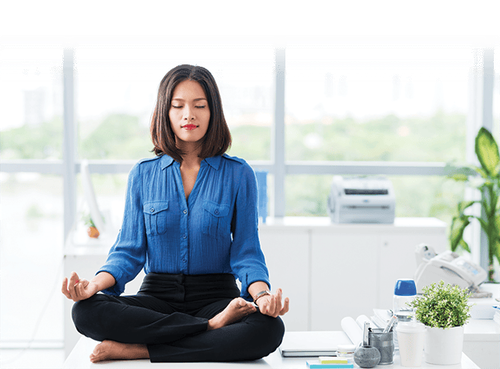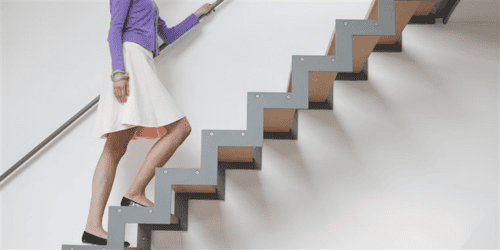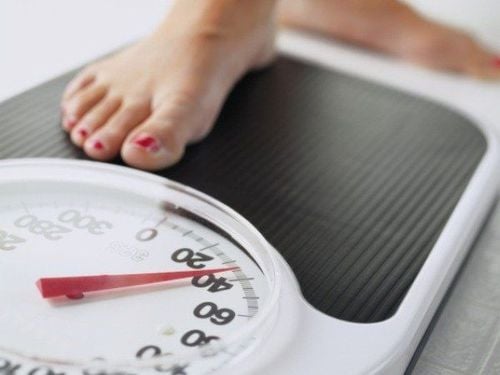This is an automatically translated article.
Exercise, in almost any form, can help reduce stress. An active lifestyle boosts the release of endorphins and takes anxiety away.
You already know exercise is great for your body, but you're too busy and stressed to spend time practicing, but now, there's one more reason to exercise, which is to manage stress. Almost any form of exercise, from aerobics to yoga, has the potential to reduce stress.
1. Exercise and reduce stress
Exercise improves overall health and well-being, helping to lift our steps every day. But exercise also offers some direct stress-reducing benefits such as:
Increases secretion of endorphins: Physical activity increases the production of neurotransmitters - the brain's happy chemicals. called endorphins. Although this effect is often associated with the feeling of euphoria in runners, any aerobic exercise, or playing hard tennis or hiking in the mountains can produce similar sensations. . Reduce the negative effects of stress: Exercise helps reduce stress by simulating the effects of such stressors, such as the response to flying or fighting, helping the body and organ systems work together. fight against these influences. Exercise has positive effects on the body - including the cardiovascular, digestive and immune systems, by protecting the body against the harmful effects of stress. Meditate in Motion: After a fast-paced game of squash, a long hike or run, or a few laps in the pool, you'll find yourself forgetting all the clutter of the day and just focusing. into body movement. As you begin to let go of your daily stresses with movement and physical activity, you may find that focusing on a single task, the energy and optimism it brings can help calm you down. Stay calm, lucid and focused in everything you do. Improve mood: Regular exercise boosts self-confidence, improves mood, helps to relax, relieves symptoms of depression and mild anxiety disorders. Exercise also helps you sleep better, as sleep is often disrupted by stress, depression, and anxiety. All the benefits of exercise lower your stress levels and give you a sense of mastery over yourself and your life.

Vận động không chỉ giúp nâng cao sức khỏe toàn thể mà còn giúp giảm căng thẳng
2. How to get the most out of your workout
A successful exercise program begins with very simple steps:
See a doctor: If you have not exercised for a long time, or you have health problems, consult your doctor before begin. Walk before you run: Build up your exercise program gradually, getting too excited about your workout can overwhelm you and even cause injury. For most healthy adults, the U.S. Department of Health recommends at least 150 minutes of moderate-intensity exercise, or 75 minutes of vigorous-intensity exercise a week, or a combination of both. Examples of moderate exercise activities are brisk walking or swimming, and high intensity activities such as jogging or cycling. Also, do strength training exercises for all major muscles at least twice a week. Do exercises you enjoy: Most exercises increase flexibility and reduce stress. The most important thing is to choose an activity you enjoy, for example walking, climbing stairs, brisk walking, dancing, cycling, yoga, Tai chi, gardening, weight lifting and swimming. You don't have to go to the gym to exercise, just walk the dog, do weight loss exercises or learn yoga via video at home. Make a specific schedule: On the schedule, you can practice early in the morning, and practice at night the next day. Choosing a time to work out each day makes you put your exercise program on your priority list.
3. Persevere in training
Starting a new episode is just the first brick. Here are some tips to stick with practice:
SMART Goal Setting: Write down specific, measurable, achievable, relevant, and time-bound goals. If the initial goal is to reduce stress, your specific goal is to commit to walking 3 times a week, working out at home via video, or cycling... Make friends: Someone waiting for you to go to the gym with you. or the park is a very powerful motivator. Exercising with friends, colleagues, or family often brings motivation and commitment to exercise. And friends can make exercise more fun! Change your habits: If you've always stuck to one activity, like running, you can try other options that also work to reduce stress, like Pilates or yoga. As an added bonus, gentler exercises can both improve your running and help reduce stress. Split exercise time: Splitting exercise time into short segments also works. If you can't walk for 30 minutes, you can walk several times, 10 minutes each time. Split your time to help you practice throughout the day, bringing efficiency. You can do mid-morning or afternoon workouts to move and stretch, walk, do squats or push-ups. Interval training, with bursts of intense full-body activity, is a safe, effective way to get the full benefits of longer duration exercise. Most importantly, make exercise a part of your daily lifestyle. Whatever you do, don't think of exercise as just a thing to do, but find joy in it. A game of tennis, meditation, a walk in the park, etc., make these actions part of you. Any form of physical activity can help you relax and become an important part of efforts to reduce stress.

Thực hiện những bài tập mà bạn thích như thiền, yoga, chạy bộ,...
Please dial HOTLINE for more information or register for an appointment HERE. Download MyVinmec app to make appointments faster and to manage your bookings easily.
Reference source: mayoclinic.org













